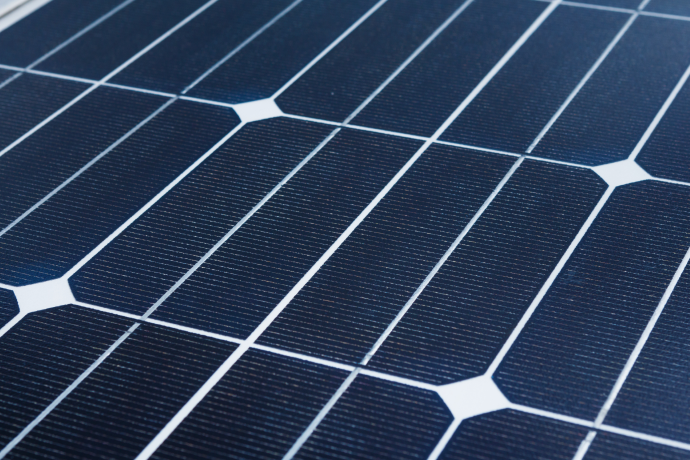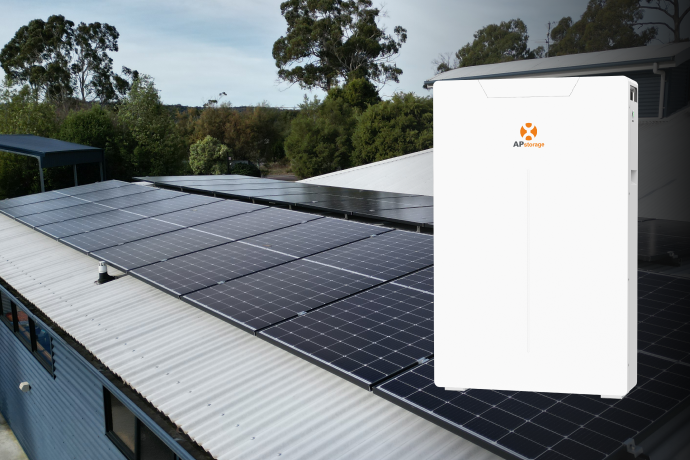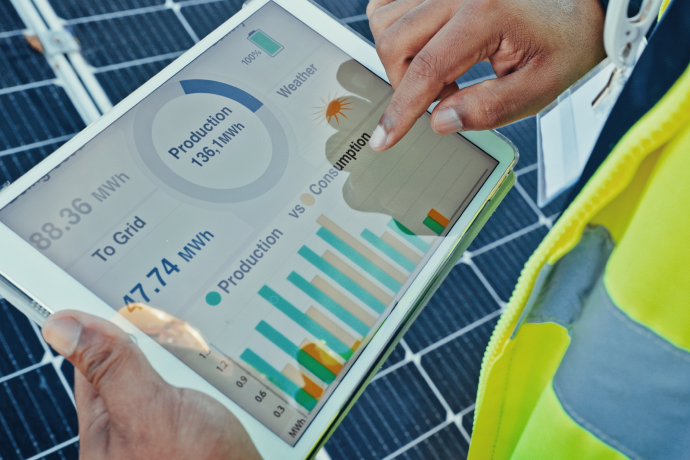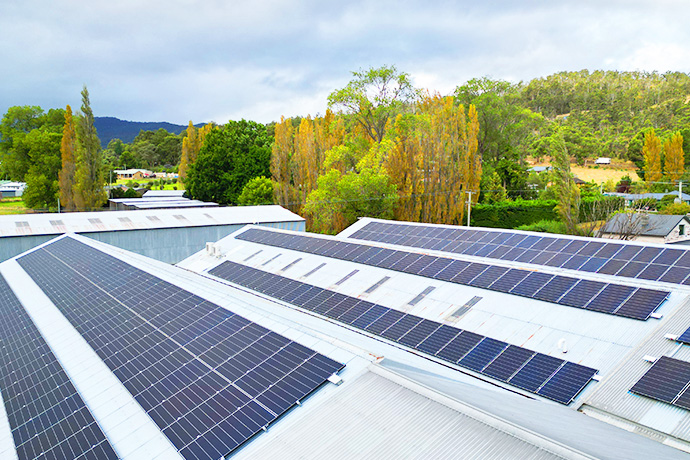
It is not just homeowners embracing solar power in Tasmania, but businesses too. Solar panels can be installed in your building site or factory and will save a business money and help the environment. Unlike residential properties, commercial businesses tend to operate during daylight hours which is ideal for solar energy consumption. Read on for everything you need to know about using solar for commercial purposes, how to choose the right system, rebates, incentives, and benefits solar panels can have for your business.
What Is Solar For Business?
Solar for business is when a business uses solar energy systems to generate their own electricity for commercial use. The difference between residential solar and commercial is residential is used for home purposes while commercial is used for business. Solar panels are installed on the roof of a commercial property, whether that be office buildings, warehouses, factories or other similar spaces that have vast roof space. Commercial solar panels are ideal for a plethora of industries from manufacturing, retail, education and healthcare to automotive, agriculture, and construction.
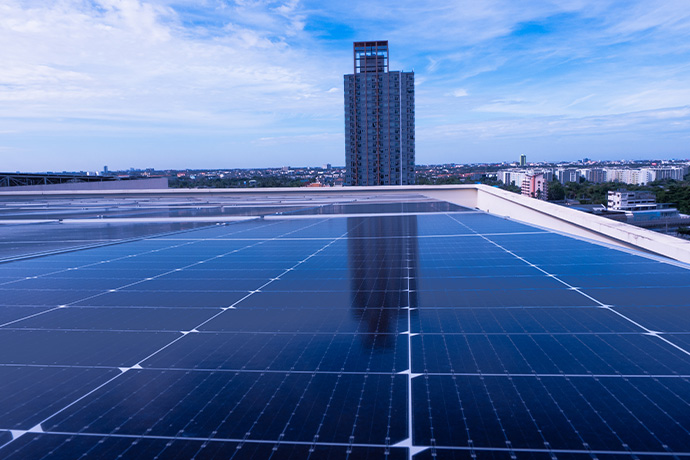
Commercial solar panels work the same as residential solar panels by converting sunlight into electricity through the photovoltaic process. The solar panels are made from silicon or another semiconductor material that is installed in the frame with a glass casing. The photovoltaic cells in the panels convert the sunlight into electricity. Solar panels for a business are usually installed on the roof and will often be much bigger than residential solar panels as they are designed to produce and supply energy to a larger area.
What To Consider Before Installing a System
Installing solar panels for commercial purposes is a strategic decision for a business that can save money and the environment. However, there are still some things to think about before you decide to install a solar system. When contemplating a transition to solar power, it is important to consider these factors to ensure it is the right direction for your commercial enterprise.
- Evaluate the business’s energy needs
Start with calculating the energy needs of your business and whether that consumption is likely to increase or decrease in the future. To maximise your solar system efficiency, it is essential to aim to use all the power the system generates. If your business is already operating, a way to calculate your energy needs is to average the minimum daily load at the same time each day over a period of seven days. Energy consumption is calculated using kilowatt hours which is how many units of electricity your business uses.
- The solar system size and capacity
Consider the size of the solar system your business would require. Having the right sized system is crucial for optimal energy production and savings. The system size refers to the amount of solar panels you will need to produce sufficient energy for your business.
The kilowatt ratings for standard commercial solar systems range from less than 30kW for small businesses to over 250kW for large commercial setups.
*Less than 39kW: Businesses that use a 30kW solar system usually have an electricity bill of around $15,000 per year which is considered low to medium usage. This system will generate about 140kWh a day.
*39kW – 100kW: Businesses like sports clubs, small retail stores or small to medium office buildings will usually require a solar system between 30 and 100kW. This system will produce approximately 140kWh to 4500kWh of electricity per day.
*Above 100kW: This sized system is usually for large businesses with high energy needs. This includes any customers who use about 500kWh of electricity per day. This size solar system is typically installed in large offices, and small to medium factories.
*Above 250kW: A solar system above 250kW is recommended for large commercial facilities like shopping centres or on the ground as solar farms.
- Calculate potential cost savings and return on investment
Once you know the size of the system your business would need, the next step is to calculate potential cost savings and return on investment. By understanding these financial aspects you can make an informed decision about whether or not solar panels are going to save money for your business in the long run. On average, the expected savings on commercial panels for a 50kW system is $16,000 per annum. A 100kW system offers approximately $32,000 in savings. Generally, the payback period for most commercial solar systems is between 4 and 9 years.
To calculate the potential savings if you install a commercial solar system, factor in how much it costs, what you will be saving on electricity, and any rebates or incentives available.
- Assess site suitability for solar panels
Before investigating solar panels further, a site assessment is essential to make sure solar installation is viable for your business or commercial property. Contact a professional solar installation company to organise a solar expert to do a site visit and evaluate if it is suitable for solar panels. The technician will determine the suitability of the roof condition, shading and amount of space for solar panel installation. Fortunately, commercial sized roofs like factories are not usually as restricted as residential roofs and ideal spaces for solar panel installation.
The roof and building will also be inspected for structural soundness to ensure it can support the additional weight of the solar panels.
Choosing The Right Solar Panels for Business
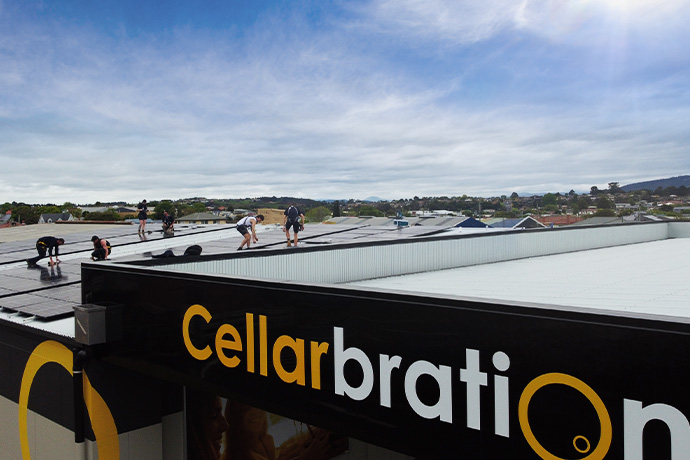 When considering solar panels for your business, there are three main types to choose from – monocrystalline, polycrystalline, and thin film. Each can be used for commercial installations, however the higher efficiency panels are far superior. We list each type here and explain their suitability for business purposes.
When considering solar panels for your business, there are three main types to choose from – monocrystalline, polycrystalline, and thin film. Each can be used for commercial installations, however the higher efficiency panels are far superior. We list each type here and explain their suitability for business purposes.
- Monocrystalline: (Efficiency) This is the best solar panel for commercial options with the highest efficiency rating of 15% to 22%. Monocrystalline panels have a higher energy output and require less space than other types of solar panels. They are the most expensive solar panels.
- Polycrystalline: (Affordability) These panels are slightly less efficient than monocrystalline panels, with efficiency typically ranging from 13% to 18%. While not as efficient as monocrystalline, the polycrystalline panels still offer a good efficiency rating at a cheaper price. They are bulkier and require more space to install.
- Thin film: (Flexibility)These are the least expensive solar panels with an energy efficiency that ranges from 10% to 12%. They are lightweight and flexible which makes them suitable for a range of building types.
Difference Between Residential and Commercial Solar Systems
Solar energy can be used in residential and commercial applications. They both utilise the same technology to convert sunlight into electricity. However there are some key differences between the two. These distinctions include:
Panel size
Commercial: These panels are approximately 30% larger than residential solar panels. They measure about 2.1m tall x 1.1m wide (or 2.3m2). Commercial panels typically have 72 to 96 cell configurations. They are designed to generate higher wattages from 300W to 500W.
Residential: Typically residential solar panels are about 1.7m tall x 1m wide (or 1.7m2). Standard residential solar panels contain about 60 to 72 cells and generate around 330W.
Installation
Commercial: Usually commercial solar panels are installed on large flat roofs with open areas. The mounting systems for commercial installations is a complex process that requires a highly experienced solar technician. Solar panels installed on commercial sites need to cope with higher wind loads and must be precisely installed with heavy equipment and specialised tools.
Residential: Often solar panel installation on residential properties occurs on sloped roofs. The mounting systems for a residence installation is designed to be more adjustable for various roof angles.
Production and efficiency
Commercial: Because commercial businesses need to install a large number of panels, sometimes they will prioritise savings over high efficiency panels. Often instead of utilising the most efficient solar panel, businesses will settle for a less efficient but more cost effective version like a polycrystalline.
Residential: Most residential properties will prioritise higher efficiency solar panels as homeowners can often have limited space and want to maximise the energy production in a smaller area.
Project timeline
Commercial: As larger projects, commercial solar systems usually take about 4 to 12 weeks to install depending on the size and complexity of the job.
Residential: Usually a residential solar panel project is a smaller and simpler process than a commercial property. The average solar panel project timeline is 1 to 3 days. Some residential installations can be carried out within a day.
Costs
Commercial: As commercial properties have a higher number of panels and system capacity than residential, they are more expensive to install. On average, a 100kW system will cost about $80,000. While the upfront costs can be considerably higher depending on the scale of the project, businesses have access to incentives, financing options and rebates.
Residential: Being a smaller scale, residential solar systems cost less than commercial systems. The average 6.6kW system costs around $6,000 to $10,000. Homeowners also have access to various financing incentives like solar rebates which offer refunds for having solar panels installed.
Benefits of Solar For Business
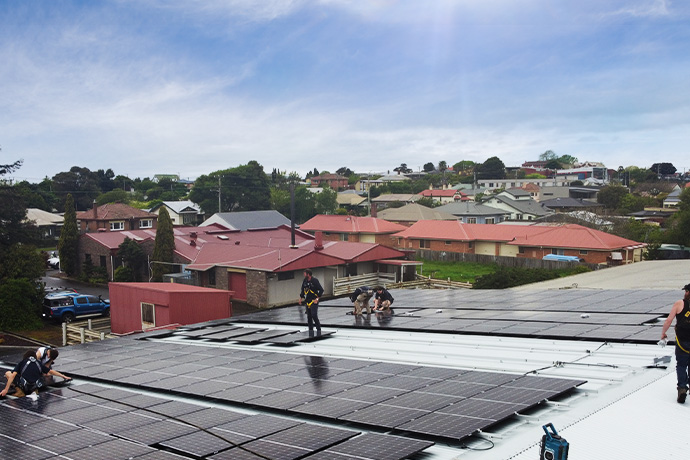 Just as residential solar has a plethora of benefits, so does solar for business. These include:
Just as residential solar has a plethora of benefits, so does solar for business. These include:
- Energy savings: Installing a commercial solar system is a smart financial decision as your business will reap the rewards of lower energy bills. Businesses that utilise solar panels to generate their own electricity reduce the dependency on the power grid for long term financial benefits.
- Environmental impact: The sheer volume of a commercial property is likely to utilise a large amount of energy resources from the environment. Using renewable energy from the sun reduces the carbon footprint of businesses and contributes to a sustainable future.
- Enhance brand image: A dedication to sustainable practices like solar energy improves a brand’s reputation and image. Installing solar systems for business can show potential customers and partners the company is committed to safeguarding the environment.
- Tax benefits: Businesses registered for GST can claim back the GST portion of the investment. Also the system can be written off as an additional tax benefit making the net present value of a commercial solar investment more attractive.
Solar for business and commercial use in Tasmania will save money and the environment. Solar systems are ideal for commercial endeavours where consumption of electricity is usually during daylight hours. If you are considering installing a solar system for your business, contact the experts in their field, Tasmanian Safer Solar, to guide you through the process.




